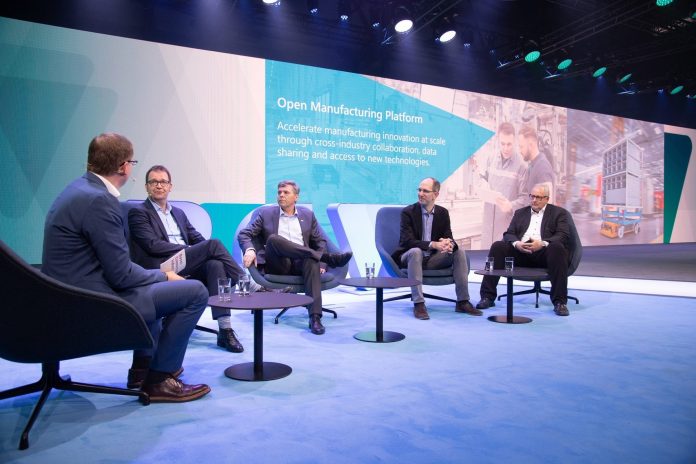Anheuser-Busch InBev (AB InBev), Bosch Group, and ZF Friedrichshafen Group have joined the steering committee for the Open Manufacturing Platform (OMP). BMW Group and Microsoft are already on board as founding members.
OMP was established under the umbrella of the Joint Development Foundation, part of the Linux Foundation, almost a year ago (April 2019). Its founders, BMW and Microsoft, said they would “break down” barriers around proprietary digital manufacturing systems, and to foster cheaper and easier innovation.
The initiative, built on Microsoft’s Azure industrial IoT platform, seeks to develop and share smart factory solutions between industrial member companies, and establish a reference architecture with open source components, based on open standards. OMP will leverage the OPC’s unified architecture (OPC UA) for industrial communications.
With AB InBev, Bosch and ZF Friedrichshafen as new members, the steering committee has approved initial working groups to look at IoT connectivity, semantic data modelling, industrial IoT reference architecture, and core services for autonomous transport systems (ATS). Bosch, in particular, has been vocal around factory connectivity, proclaiming the role of 5G and OPC-UA, combined with time-sensitive networking (TSN), as Industry 4.0 has reached a more ‘practical’ phase.
The group highlighted the working groups for IoT connectivity and semantic data modelling, in particular. It said connectivity is “one of the first steps” to digitize production lines and leverage cloud-connected industrial IoT applications.
Werner Balandat, head of production at ZF Friedrichshafen, said: “Today, it is all about analytics and predictions. But without data no analytics and without connectivity no data.”
The challenge for manufacturers is to reconcile connectivity standards and interfaces for legacy machines and applications that have been in place for many decades, often.
The IoT Connectivity working group will provide industrial-grade edge and cloud functionalities for the integration and management of OPC UA devices in brownfield environments, it said.
Meanwhile, managing data in a common format across multiple sources with constantly evolving semantics is another challenge, OMP said. “Data is the raw material for Industry 4.0 and a prerequisite for optimizing production with the help of artificial intelligence,” said Michael Bolle, member of the board at Bosch.
OMP wants a semantic model that makes data understandable and illustrates its relations and dependencies. “Users no longer receive cryptic, incomprehensible numbers and characters, but production-relevant information including their context,” said Bolle.
“This semantic data structure ensures improvements along the entire value chain and makes AI-based business models possible on a large scale.”
OMP said legacy and proprietary manufacturing systems have, so far, made operation-wide insight for smarter manufacturing a “daunting” undertaking. “As common challenges across the industry, they often require a high degree of investment for modest returns within any one organization,” it said.
The group supports other Industry 4.0 alliances, referencing the OPC Foundation and Plattform Industrie 4.0, and leverages existing industry standards, open source reference architectures and common data models.
It will continue to recruit new members from the manufacturing sector, it said, including from discrete and process manufacturing, transportation and consumer goods, and industrial equipment.
Jürgen Maidl, senior vice president for production network and supply chain management at BMW, commented: “Our goal is to drive manufacturing innovation at scale, accelerate time-to-value and drive production efficiencies by jointly solving mutual challenges, based on an open community approach.
“The OMP helps manufacturing companies unlock the potential of their data, implement industrial solutions faster and more securely, and benefit from industrial contributions while preserving their intellectual propertyand competitive advantages, mitigating operational risks and reducing financial investments.”
Scott Guthrie, executive vice president for cloud and AI at Microsoft, said: “Through the open collaboration approach that is the cornerstone of OMP, manufacturing companies will be able to bring offerings to market faster, with increased scale and greater efficiency. Solutions will be published and shared across the community, regardless of technology, solution provider or cloud platform.”
Tassilo Festetics, global vice president of solutions at AB InBev, said: “The collaboration framework and heart of the OMP are its working groups. We are excited to join in a moment where our manufacturing facilities are becoming increasingly connected, and we are looking for innovative ways to make us of the treasure trove of data that is being generated.”

